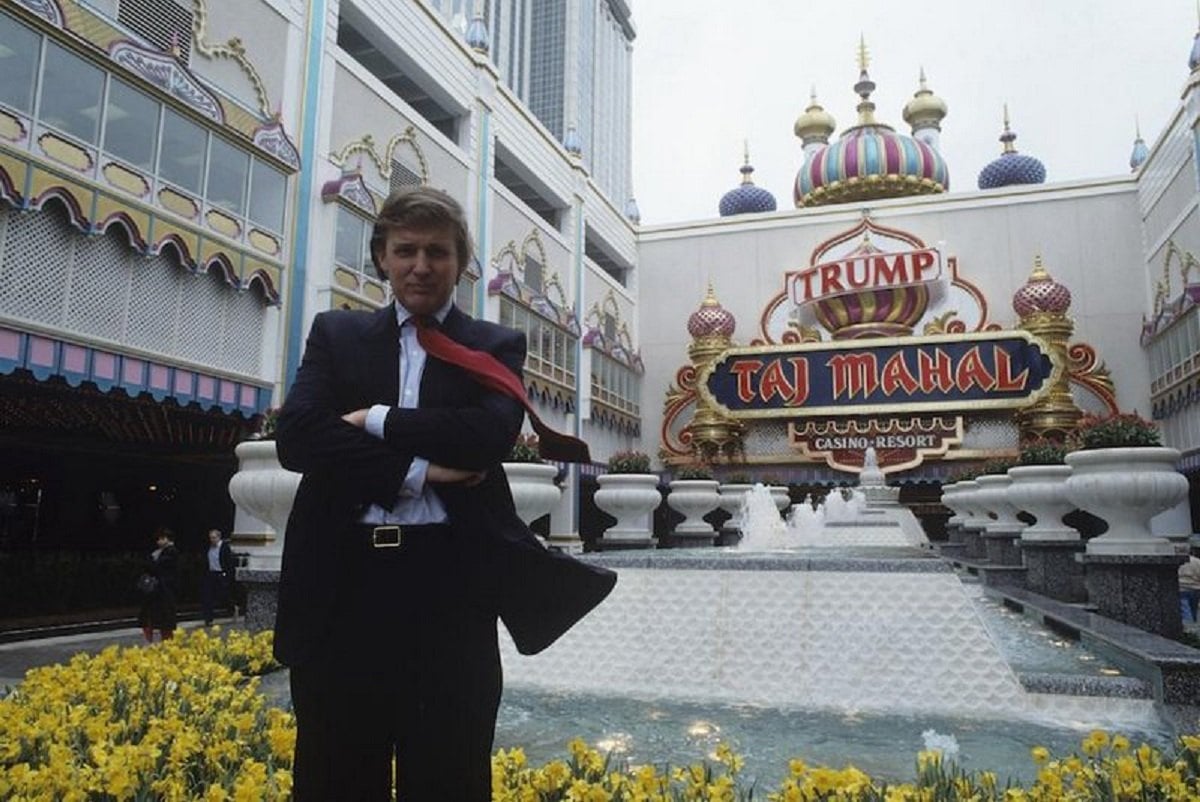Alleged Trump Tax Records Show Extent of Atlantic City Casino Losses
Posted on: May 8, 2019, 05:51h.
Last updated on: May 8, 2019, 05:51h.
Purported printouts of Donald Trump tax transcripts from the mid-1980s to mid-1990s obtained by the New York Times reveal he lost $1.17 billion — reportedly more than any other individual American — at a time when casinos formed a core part of his business.

The picture NYT paints shows a period of rampant borrowing, acquisition, and financial loss to the extent that Trump was not required to pay income taxes for eight of the 10 years covered by the NYT records.
Charles Harder, a lawyer for the president, described the information as “highly inaccurate.”
That Trump’s Atlantic City casino businesses struggled is nothing new — he sought bankruptcy protection in 1991 for the Trump Taj Mahal, a year after it opened — and then again in 2006 and 2009 — despite a controversial $65 million bailout from the State of New Jersey.
Trump himself has admitted that his casinos were plagued by high debt and faltering revenues sparked by the recessions of the early 1990s and late 2000s, but it has long been speculated that he got out of Atlantic City relatively unscathed – after all, he said so himself.
Trump Taj Debt Hole
“Atlantic City fueled a lot of growth for me,” said Trump in May 2016. “The money I took out of there was incredible.”
But while the NYT numbers only present a decade of Trump’s secretly guarded finances, they suggest — if accurate — that 1990 and 1991 were a personal disaster financially.
Allegedly, he reported combined losses of $517.6 million for those two years. Over the following three years, his core businesses lost an additional $286.9 million, NYT claims.
The Trump Taj Mahal Hotel and Casino opened in 1990, partly financed with $675 million in junk bonds. Had recession not kicked in that year, it might have been a gamble that paid off for Trump, but the casino failed to generate enough to cover the high interest rates on the bonds. This sucked up revenues from his other casinos, pushing the business towards chapter 11 reorganization.
Trump quit the casino business in 2009, after the third bankruptcy restructuring of his casino company, Trump Hotels & Casino Resorts, although he retained 10 percent until 2014 when the billionaire Carl Icahn rescued the business from another bankruptcy.
Is Trump Tax Leak Illegal?
NYT claims it received the information contained in the returns — which would likely to have run into thousands and thousands of pages and supporting documents — from someone who had “legal access” to the them.
It is a felony, punishable by up to five years, to improperly disclose private tax information.
In 2017, the journalist David Clay Johnston claimed he had been mailed pages of Trump’s tax returns anonymously. The pages showed Trump had large sources of income and was paying his taxes.
Related News Articles
Most Popular
LOST VEGAS: ‘Tony The Ant’ Spilotro’s Circus Circus Gift Shop
Las Vegas Overstated F1 Race’s Vegas Impact — Report
Mega Millions Reportedly Mulling Substantial Ticket Price Increase
Las Vegas Strip Stabbing Near The Strat Leaves One Man Dead
Most Commented
-
End of the Line for Las Vegas Monorail
— April 5, 2024 — 90 Comments -
Mega Millions Reportedly Mulling Substantial Ticket Price Increase
— April 16, 2024 — 8 Comments -
Long Island Casino Opponents Love New York Licensing Delays
— March 27, 2024 — 5 Comments -
Sinclair Broadcast Group Selling 7.91 Million Bally’s Shares
— April 12, 2024 — 4 Comments
















Last Comment ( 1 )
You leave out that every casino owner in Atlantic City, from Trump to Caesars has greatly struggled in past years. You left out that Caesars Entertainment filed for bankruptcy in 2015. Where is the story of Atlantic Club, Showboat, and Revel closing along with Trump Plaza and later, the Taj Mahal? You just wanted it to seem like Trump alone failed in AC. As he would say, FAKE NEWS!!! Please report the truth and not your narrative.